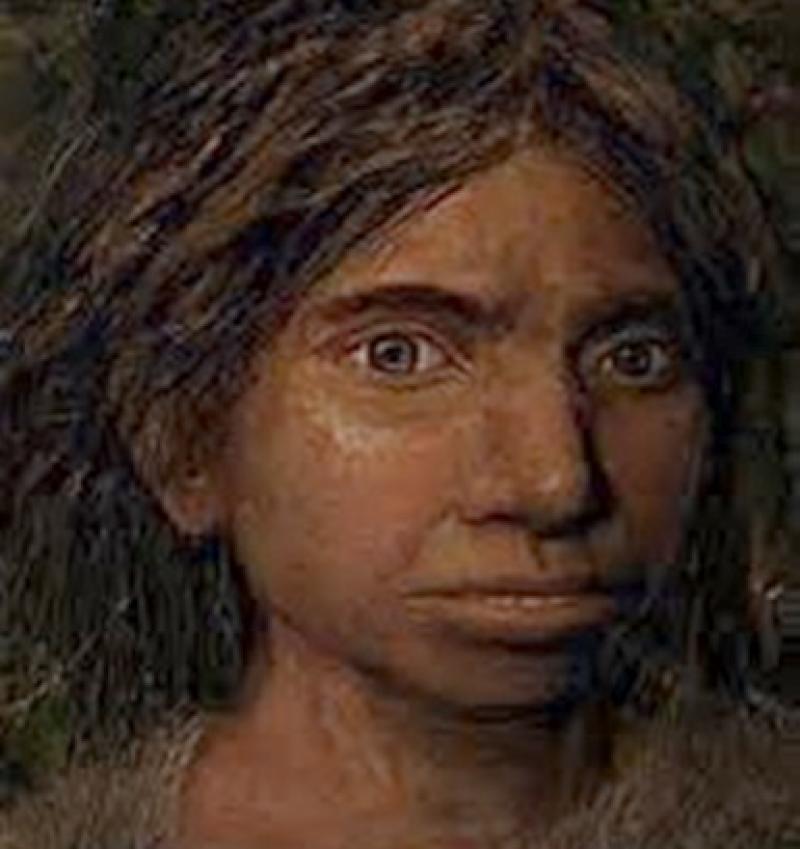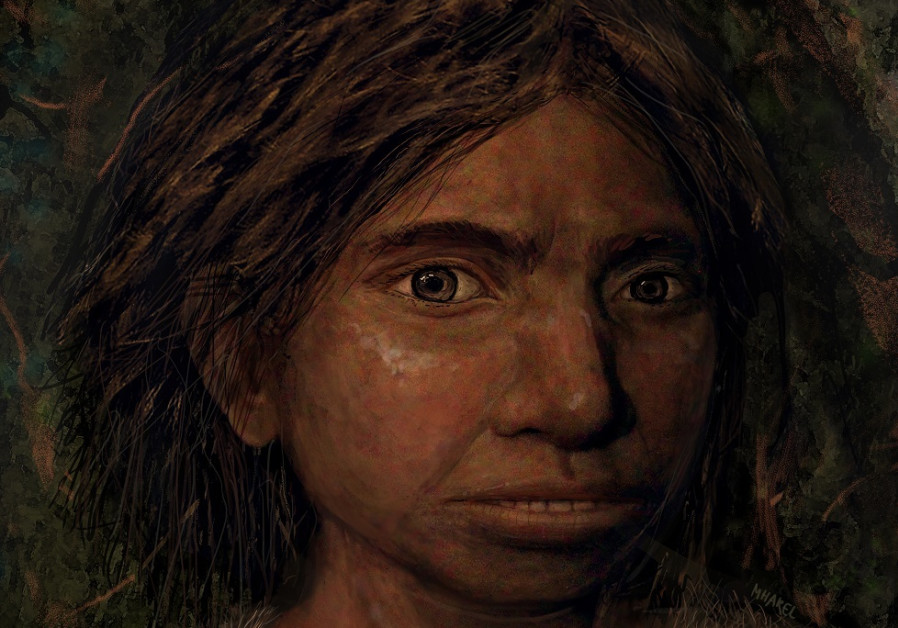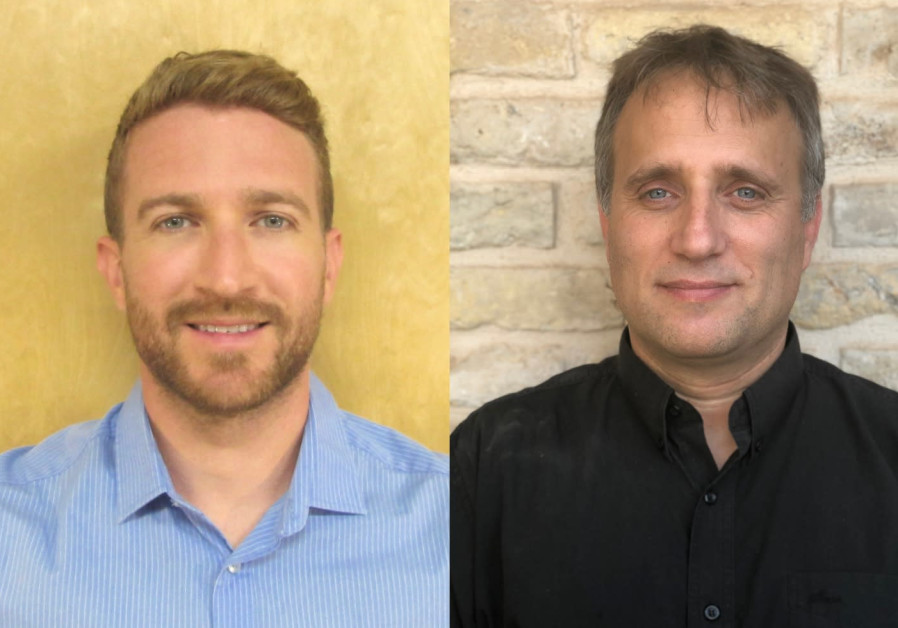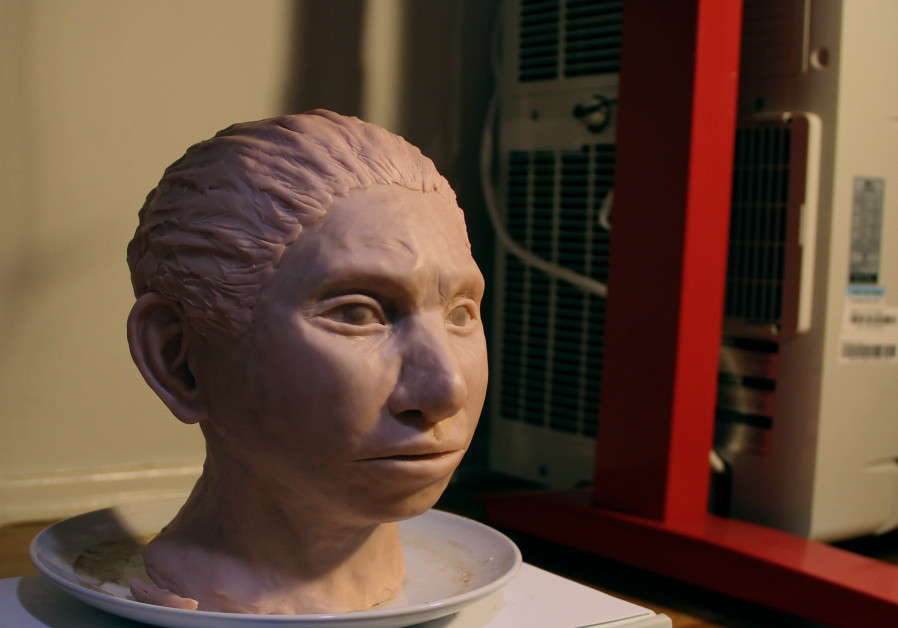SEE THE FACE OF YOUR 100,000-YEAR-OLD ANCESTOR



SEE THE FACE OF YOUR 100,000-YEAR-OLD ANCESTOR
Israeli team used DNA to design first Denosivan replica
BY MAAYAN JAFFE-HOFFMAN, JERUSALEM POST, SEPTEMBER 20, 2019

Portrait of a female Denisovan teen. (photo credit: MAAYAN HAREL)
Meet “Denise,” the first reconstructed anatomical profile of what, until now, were considered the mysterious Denisovans, a group of archaic humans.
She was revealed on Thursday by researchers at the Hebrew University of Jerusalem . The team that managed to recreate her profile says that long term, their research shows possible strategies that could have forensic applications.
Denisovans lived in Siberia and Eastern Asia before going extinct approximately 50,000 years ago, said Hebrew University researcher Prof. Liran Carmel, who led the study. But exactly what Denisovans might have looked like had previously been anyone’s guess. Since their original discovery in 2008, researchers had only three fossils to work with: a bone from the tip of “Denise’s” pinkie finger, a few teeth and a recently found lower jaw bone.
The researchers were able to reconstruct the Denisovan profile over a three-year period by examining patterns of methylation in their ancient DNA . DNA methylation is a process by which methyl groups are added to the DNA molecule, thereby changing the activity of a segment of DNA. “Methylation provides ample information on gene transcription,” Carmel explained.
3-D printed reconstruction of a female Denisovan (Credit: Maayan Harel)
“We got a prediction as to what skeletal parts are affected by differential regulation of each gene and in what direction that skeletal part would change – for example, a longer or shorter femur bone,” said Dr. David Gokhman, now a postdoc at Stanford, who also worked on the project.
Carmel said it is very difficult to get an anatomical profile from a DNA sequence. At most, scientists and forensics teams can tell basic details, such as whether the person has dark hair or skin. DNA methylation, however, allows researchers to make much more detailed anatomical predictions.
 Dr. David Gokhman and Prof. Liran Carmel (Credit: Hebrew University of Jerusalem)
Dr. David Gokhman and Prof. Liran Carmel (Credit: Hebrew University of Jerusalem)
The team was able to prove their model to be about 85% accurate by using the same methodology to create anatomical models of Neanderthals and chimpanzees, which have known anatomical profiles.
“One of the most exciting moments happened a few weeks after we sent our paper to peer review,” Carmel said. “Scientists had discovered a Denisovan jawbone. We quickly compared this bone to our predictions and found that it matched perfectly. Without even planning it, we received independent confirmation of our ability to reconstruct whole anatomical profiles using DNA that we extracted from a single fingertip.”
The researchers found that Denisovans have strikingly similar methylation patterns to humans. They also found that there are 56 anatomical features in which Denisovans differ from modern humans and/or Neanderthals, 34 of them in the skull.
Past research done outside of Hebrew University showed that up to 6% of present-day Melanesians and Aboriginal Australians contain Denisovan DNA. Furthermore, Denisovan DNA likely contributed to the ability of modern Tibetans to live in high altitudes and to Inuits’ ability to withstand freezing temperatures.
Carmel said that while “using our method directly for forensic application is currently not possible” – because it is designed to study differences outside the variability of modern humans and police would need to find features within that variability – “DNA methylation may provide much information that could help the police,” with forensic data in the future.



Bravo Israeli Scientists.
Fascinating.
When seeing such examples, the mind can't help but thinking of striking up a conversation with the modeled individual.
Pretty amazing.
Here is a link to another recent discovery in Siberia. Seems as though Siberia is a ''hotbed'' for missing links.
And folks don't remember that Siberia was a Tropical zone, so, yeah, there's gonna be habitation.
We get to know more and more, a step at a time.
I remember Denise.
I saw her dancing at my H.S. Prom.
Thanks for the memories.
Enoch.
Your avatar depicts Moses. Maybe it should have been Methuselah.
BOL. Great one!